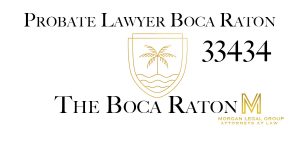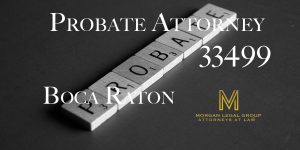Managing Estate Taxes During the Probate Process
Understanding how estate taxes are handled during probate is crucial for executors and beneficiaries alike. At Morgan Legal Group in Miami, we provide expert guidance to navigate these complexities, ensuring a smooth transition of assets.
Introduction to Estate Taxes in Probate
Estate taxes, often known as the “death tax,” are levied on the transfer of the deceased’s assets. The probate process plays a pivotal role in determining the estate’s tax liabilities and ensuring these taxes are paid.
Identifying Taxable Assets
The first step in managing estate taxes is identifying which assets are subject to taxation. This includes real estate, bank accounts, investments, and other personal property. Certain assets that bypass probate, like life insurance or retirement accounts with designated beneficiaries, may still be subject to estate taxes.
Valuing the Estate
Accurately valuing the estate is essential for tax purposes. This valuation must reflect the fair market value of the assets at the time of the decedent’s death. Professional appraisals may be necessary to determine the correct values.
Filing the Estate Tax Return
An estate tax return, typically IRS Form 706, must be filed if the estate exceeds the federal exemption amount. As of my last update, the federal exemption amount is $11.7 million for individuals. However, this threshold can change, so it’s important to verify the current exemption levels.
Utilizing Deductions and Credits
Several deductions and credits can reduce the estate’s tax liability. These include debts owed by the deceased, funeral expenses, and charitable donations. Additionally, any state estate taxes paid can also provide a credit against federal estate taxes.
State Estate Taxes
While Florida does not impose a state estate tax, many states do. Executors must be aware of the state laws applicable to the estate. Filing a state estate tax return may be necessary if the estate includes assets in states with such taxes.
Payment of Estate Taxes
Estate taxes are typically due within nine months of the decedent’s death. Extensions can be requested, but interest may accrue on the unpaid balance. It’s crucial to plan for liquidity to meet these tax obligations without having to sell off assets at a disadvantage.
Role of the Executor in Managing Estate Taxes
The executor is responsible for ensuring that all tax filings are accurate and submitted on time. They must also make sure that the estate’s taxes are paid from the estate’s funds before assets are distributed to beneficiaries.
Challenges in Estate Tax Planning
Effective estate tax planning requires foresight and strategic decision-making. Trusts, gifting strategies, and other estate planning tools can help minimize estate taxes and preserve wealth for future generations.
Conclusion: Navigating Estate Taxes with Expertise
Handling estate taxes during probate can be complex, but with the right guidance, it’s manageable. At Morgan Legal Group in Miami, we specialize in estate planning and probate processes, helping our clients navigate these challenges with confidence.
Contact Morgan Legal Group for Estate Tax Guidance
If you’re dealing with estate taxes or need assistance with probate and estate planning, contact Morgan Legal Group. Our experienced team in Miami is ready to provide you with the expert advice and support you need.








